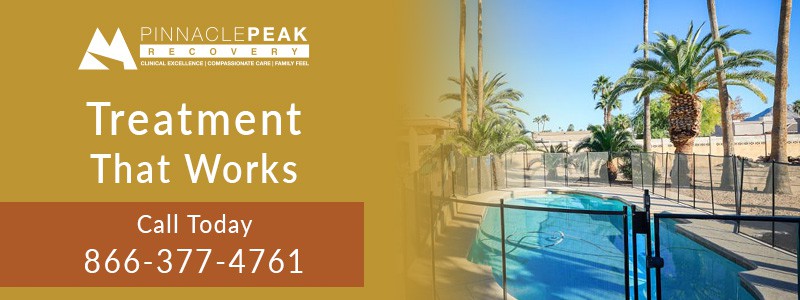When my doctor matter-of-factly said that I should stop drinking because I had signs of liver disease, I couldn’t imagine a life where drinking was off-limits.

And I didn’t really take it to heart because one drink wasn’t really going to cause me to explode, right? So I kept on drinking, more occasionally though. And of course, it was never one drink.
It took quite a while for me to hear the Alcoholics Anonymous’ approach to “one day at a time.” This WAS a concept I could understand. Anyone can truly do anything with that approach vs. a lifetime mindset.
You see changes in so many aspects of your life when you examine it and experience it first-hand and I will share my perspective just to give you an idea of what you can expect when you approach it one day at a time.
 Physical Benefits of Quitting Alcohol
Physical Benefits of Quitting Alcohol
You will probably feel pretty bad for a while. But that’s a good thing. And by bad, it’s like a scab that has to happen: forms, gets itchy and uncomfortable but you know there is new healing and growth underneath. That is your body’s response to removing alcohol from your system. I eventually stopped drinking (another story for another time) and when I was ready, felt changes immediately.
My splotchy skin was the first outward visible sign as it became more clear as toxins left my system. I also developed a confusing desire to eat everything sweet because I was unaware of the amount of sugar in alcohol. Now? Sugar-free popsicles are my new friend instead.
Sleep rhythms will also improve. This can take a while, even six months to a year, but sleep disruption will lessen. Better rest is important to get the time to recharge your mind and body.
My hands were shaky for about a month after my last drink, which might be less for someone else depending on their level of addiction. My speech was clearer, and as my mind began to clear, I could start to grasp reading, which had been my lifetime hobby that was put on the backburner to holding a beer instead. My blood work two months later showed that my levels were still off but had started to improve in that short time.
Risks that come with heavy drinking are cardiovascular disease (the number one killer in women), high blood pressure, and reduced glucose levels (for consideration with the onset of type II diabetes).
Short term, a good night’s sleep shows what each day adds up to with long-term physical health improvements.
 Psychologically
Psychologically
With alcohol reduction, your mind becomes more clear. Memory strengthens and moods are more balanced. What used to send you into rages or crying jags can now be approached more strategically.
Cognitive-behavioral therapy skills teach you how to consider what has previously triggered you to drink and find more meaningful ways to resolve situations. This can be applied to events throughout your life because losses, frustrations, and difficult situations will inevitably occur. Positive events are a part of life too, such as family births, weddings, graduations, and even helping your child buy a new car.
Your newfound clearness of mind and presence in being will help you contribute to and build these events that forever link you and your loved ones together.
Keeping the approach “today is a day not to drink” will help you over time with improved memories of good times.
 Financially
Financially
Many expenses come with drinking, and that starts with no longer spending money on alcohol. Let’s imagine you drank a six-pack of beer daily for one year. By no longer spending $7 daily, you will have $2,555 back in your pocket. And if we’re being truthful, probably a lot more was spent.
Some people are also inclined to make unnecessary purchases when intoxicated, also known as “drunk spending.” If you have avoided a driving while intoxicated citation or jail time, those expenses are considered avoidances.
You are also in a much better state of mind as an employee and can financially contribute to your family’s resources, or to yourself if you have relied upon others.
Personal Relationships
When your loved ones used to be unable to rely on you, these relationships were damaged. You will slowly build trust by showing up the day and time you said you would.
It is through actions that we show our true selves, not words. Even if they don’t expect you to show up, show up. If they voice doubt or say they don’t care, show up. This is the pathway to building that long-lost trust and replacing lies, cheating, and missed events. Again, if you haven’t been following along, show up!
Making Amends
Steps 8 and 9 of the 12-step program for AA involve making a list of people you have hurt through your drinking and making amends to them, except in cases where it would cause further harm. Oftentimes these areas include work, family, and friends. You do not specifically need to say you are taking these steps for a program.

The day you both spoke, they may have been receptive but when allowed to reflect, grew resentful for things that didn’t come up. You might have to do this step several times with a person but shouldn’t let that discourage you. After all, they are coming back and keeping the door open to resolving things eventually.
What if the person you hurt is no longer around? You can write your thoughts on a letter and spend some time meditating and then perhaps burn the letter. You might just close your eyes and whisper a prayer to them.
If you have taken money from someone and can replace it, this is the time. Maybe it is less than the full amount if that is all you can afford at the moment. Again, the action shows someone you have made positive changes to your behavior while acknowledging the impact it had on them.
Spousal/Significant Other Closeness
When you have a relationship with alcohol, it’s hard to stay awake for dinner or other special times with your loved one. Physically, sex is often erratic or non-existent. Rebuilding your closeness will help in restoring your relationship to the priority status it deserves. This is also good to display a positive relationship for your children if you have them.
So whether it is breakfast, lunch, or dinner, find a mealtime that works and make a date to discuss fun topics or plans.
Job/School
We all might be at a different stage at this juncture, but the result is the same. You will be better at what you do with a mind clear of alcohol. Your decisions and actions are quicker and your memory recall is improved, which in turn directly affects your performance.
I would become late on assignments but was fortunate that these were self-made deadlines and easily excused. My work without alcohol was done much quicker, which was a result of my procrastination tendencies. I developed a new system to be a day ahead of my deadlines and allowed myself a treat, whether it be a walk, lunch with a friend, or some time with a book with my newfound free time that included peace of mind.
If you are working on finding a job you may have lost because of time spent with alcohol, this can be done in much the same manner. Make a list of what should be accomplished each day, whether it be job applications, writing a resume, or making a list of prospective employers in your field, and then give yourself a pat on the back for a job done that day. The next day? Get up and do it over again. If you find yourself struggling, look for area resources in your city or county that may help with job placements.
For those of you with jobs, be thankful you still have them and alcohol didn’t wreak havoc on that part of your life. Having a routine is important in alcohol recovery because it keeps you focused on positive activities. If you would like to expand your skills, talk with your manager about a plan you would like to work toward. Perhaps it’s possible to share jobs with a co-worker so you are each trained for the others’ tasks. This helps your company have multiple people to rely on in a pinch if there is a demand and gives you something fresh on which to focus your energies.
Sharing Your Story
By being open about my struggle with alcohol, I have been able to live my life on a whole new level. I don’t have to keep secrets and am an open book—perhaps too much!
This is so important to remove the shame and stigma associated with alcoholism in society. If I say, “I’m going to a meeting,” my family knows what that means. My friends have called me with questions about themselves and are also happy to see my path. True friends don’t laugh when you decline a drink. My parents are happy for me and understand my road, as they are both recovering alcoholics for 40-plus years now.
I am strong and my daughter has been my biggest champion, aside from my husband. At the age of 17, she has made a choice not to drink and she makes herself heard quite loudly around her friends. She says she hasn’t suffered any negatives as some people might wonder—parents take note—and it is due to the strength and firmness she delivers her message. Share that message with your children or young family members you might have in your life. You can be a leader for them and someone to go to without judgment.
My son only has one kidney and is a 19-year-old college sophomore who chooses to drink. I tell him to drink water between each drink and have focused more on the physical impact, hoping that will hit home better with him. I am still going to talk to him about my liver issue, but have been careful of the frequency I address the topic with him. This is ever-present in my mind as a reason not to drink. I have spent many “days” working to regain his trust.
Each time someone becomes aware that alcohol is not inevitable in someone’s path they choose in life, perhaps they will also pause and rethink their own choices. These are not judgments on others whatsoever. It is just showing another path that is often overlooked.
Volunteering
Contributing your assistance to others is a benefit to the community. But it is also a great way to meet people and feel a social connection of belonging. Many people become isolated in their pursuit of drinking and lose touch with friends. Helping on a Habitat for Humanity house can fill up your day with wonderfully tiring work around a cheerful support group you can bond with.
Maybe one day is spent finding a good group you like supporting or one is already at the top of your list. Check out their events and schedule a time to show support.
Be Mindful to Not Replace Alcohol With Another Addiction
It can be all-to-easy to be overeager when approaching new situations without alcohol. Whether this is putting in long hours at the office, making a workout routine that consumes your free time, or starting to overeat, it is very common to be excessive in other ways.
Choose activities and approach them without letting them consume you.
Recovery
This is a stage that should stay with you each day. Being mindfully aware of alcohol’s danger to your health and well-being is an important part of not relapsing down the addiction roadway.
- Stay involved in support groups
- Find a sponsor or mentor you can share your progress with
- Volunteer in the recovery community
- If all things feel overwhelming, just focus on the fact that for that day, you are not drinking. If you find yourself close to feeling like a drink seems like a good idea, go to a meeting or call your sponsor and speak out that you are having a “burning desire,” which is the AA code for needing to speak out and ask for help not to drink that day
Be aware if you start missing meetings or isolating yourself. Knowing these are early steps in the potential to relapse will help you be aware and get back to your routine. These are all signs someone is at risk of relapse and being aware of this is a helpful tool for you to keep on track.
To summarize, a day without alcohol will benefit you in the following ways:
- Physically
- Psychologically
- Financially
- Personal relationships
- Spousal/Significant other closeness
- Job/School
- Sharing your story
- Volunteering
- Recovery
Before you realize it, days turn into weeks, then months. If you are in a support group, usually these anniversaries are celebrated with a token given for the “start-over,” 30 days, 60 days, 90 days, six months, nine months, and one-year achievements. Each year after, another token is given. Sometimes your mentor will give you one of their special tokens as a keepsake. Many times, the tokens are passed around the room and each person touches it to show support for you in your continuing journey of recovery one day at a time.
Perhaps you will become a sponsor and can pass on one of your tokens to keep the legacy of support and recovery alive, one day at a time.
Call Pinnacle Peak Recovery for Alcohol Rehab Treatment
Getting yourself or your loved one into alcoholism treatment as soon as you recognize signs of alcohol use disorder is important and our doors are always open. Pinnacle Peak Recovery’s family of trained, licensed professionals are ready to help you to begin your recovery at 866-377-4761.


 Physical Benefits of Quitting Alcohol
Physical Benefits of Quitting Alcohol Psychologically
Psychologically Financially
Financially



